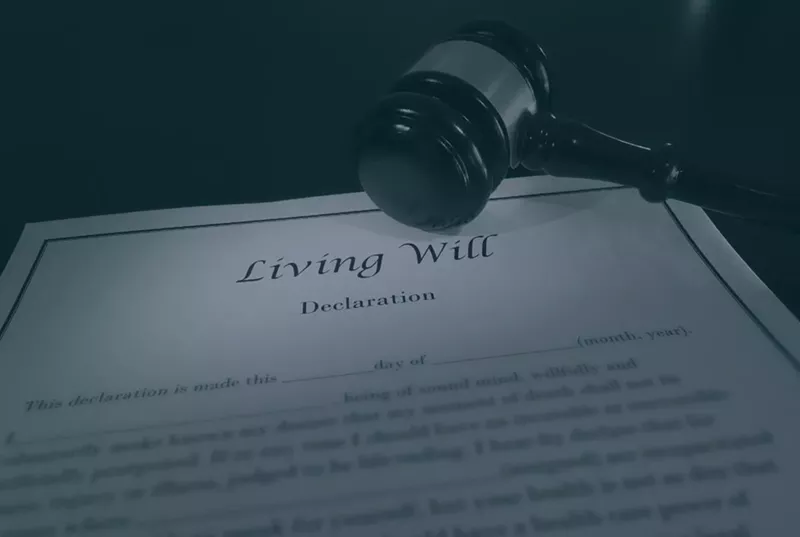A Missouri woman has had a good life, according to her. And now that she can see the end of that life rapidly approaching, she wants to make sure that goodness extends to her death. For Gayle Hendrix, that means making the journey across the Atlantic to Switzerland, where the 79–year–old will pursue medically assisted suicide.
Before you get up in arms, for the purposes of this story, it’s vitally important that you understand that Hendrix is terminally ill. She has been living with lupus and an interstitial lung disease that has her completely dependent on oxygen, and unable to walk longer than a very short distance. She won’t be getting better. Her condition has progressed to such a point that this is as good as it’s going to get for her.
Hendrix has been a vocal supporter of personal autonomy throughout her life, and given that she’s had ample warning that the reaper will be collecting her soon, it stands to reason that someone who has demonstrated that they have strong feelings about personal choice would feel that personal choice should be extended to her when it comes to choosing how and when she will walk into death’s embrace.
However, her choice poses a question that the medical community has been grappling with for decades. When a society places a high value on personal autonomy in life, how do we ethically extend that value to the inevitability of death?
In order to start working towards an answer, we first must take a quick lesson in autonomy. Autonomy is defined as the right or condition of the government of one’s self. The right to autonomy is what guides the vast bulk of the laws that are written that make up how we as a society engage with one another. Without sliding into other political and ethical hot potato-esque issues— because medically assisted suicide seems spicy enough for one piece— let’s highlight a few ways in which the law supports autonomy.
You have the right to open and own your own business. You have the right to hire employees, but you have the obligation to pay them a minimum wage, because they have the right to be fairly compensated for their time and skill.
You have the right to purchase and own your own home, and can even adjust that home so that it better suits your needs and preferences, but if you tear down your neighbor’s fence so that you can build a guest home in their backyard, you’ve crossed the line of exercising your own autonomy and have violated theirs.
Make sense? Excellent. Back to Gayle Hendrix, and her desire to leave this earth on her own terms.
Hendrix has always been a very physically active person, someone who has enjoyed moving her body and being able to utilize her physicality in order to pursue her desires. Unfortunately, her chronic— now terminal— illness has rendered her unable to walk more than a short distance. More than that, she is fully dependent on her oxygen tank in order to keep breathing due to the condition of her lungs. She has already deteriorated to such a point, that she feels she’s approaching the threshold of existing instead of living, and Hendrix wants to die before she gets to the point of feeling as though she is giving up her dignity. Not to mention the fact that she doesn’t want to suffer more than she already is.
So, since Gayle Hendrix seems to feel confident in her decision, why does she have to travel to Switzerland in order to die?
Because in the state of Missouri, medically assisted suicide is a felony. Even in Oregon where such things are legal, patients seeking that option must be within 6 months of passing naturally. Hendrix’s condition is intense enough that if she waits for that window, she won’t be able to pass away with the dignity and lack of suffering that she desires.
Her daughter Charlene Foeste doesn’t approve of this decision, and has stated that she in no way wants her mother to make this choice, but she does indeed believe that it is indeed her mother’s decision. She’ll be making the trip out to Switzerland with her, because while she disagrees with her decision, she loves her, supports her, and sure doesn’t want her to go alone.
Hard to imagine that having been raised by someone who believes so fervently in the importance of autonomy, that Foeste supports her mother’s right to end her life on her own terms; even if she isn’t ready to say goodbye just yet.
To Gayle Hendrix, this journey to Switzerland is the end of a story. But for those of us who have been following along, and who have been moved to ask questions in light of her convictions; it’s the beginning of a larger conversation, and offers society a chance to think on questions that don’t have easy answers.
Because writers are mean and make you think, we’re going to leave you with the following questions. What do we truly believe about personal autonomy? Does the right to control our own lives extend to the right to control our own death? If personal autonomy is so sacred in life, should we really be so restrictive about the power of choice when it comes to our death?







